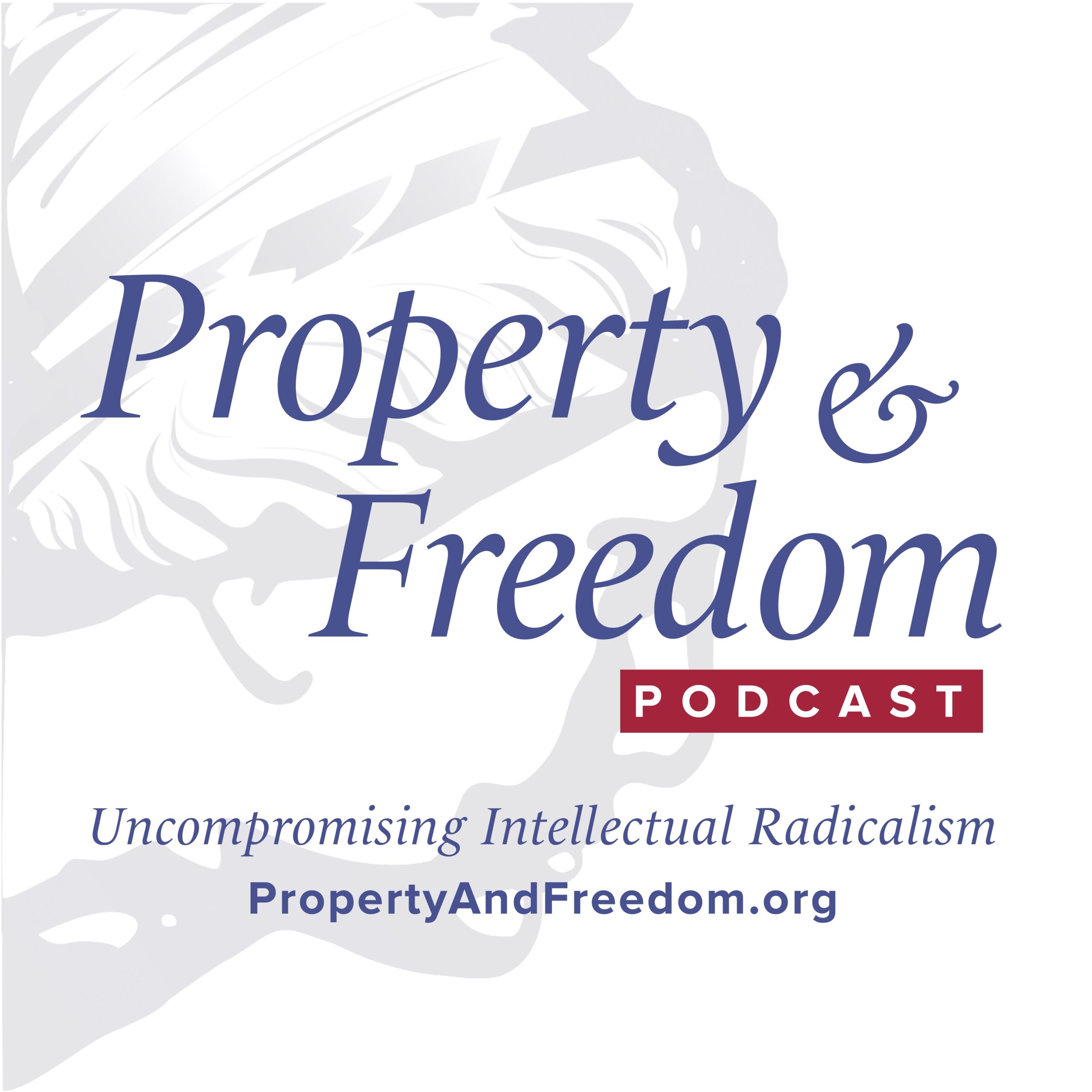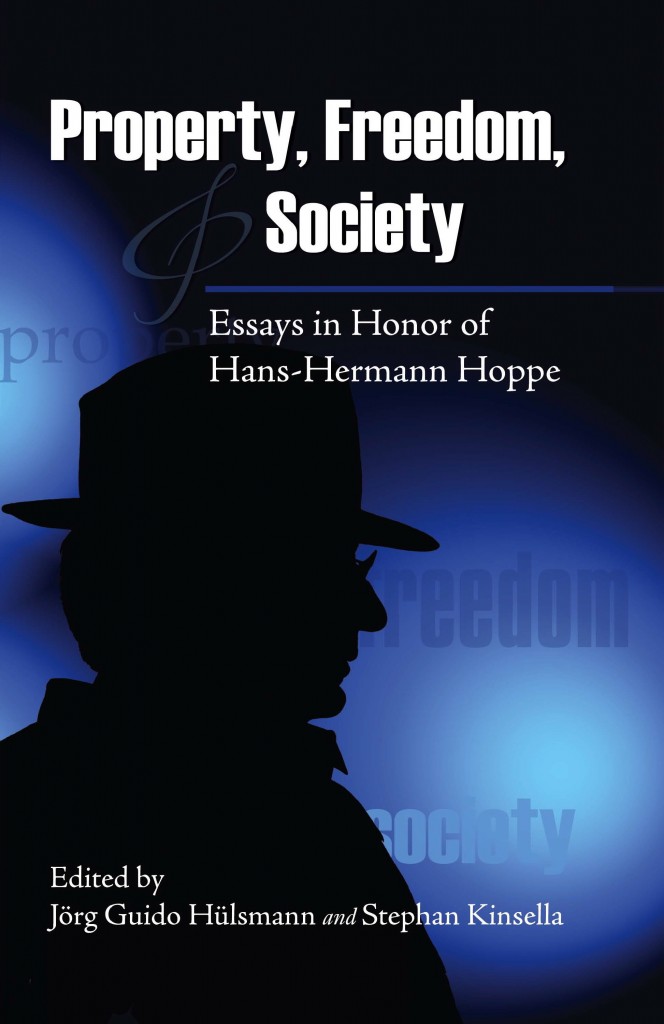Property and Freedom Podcast, Episode 240.
This panel discussion is from the 2022 Annual Meeting of the Property and Freedom Society. Andreas Tögel (Austria), Doug French (USA), Robert Groezinger (Germany), Daniel Model (Liechtenstein; Model Holding), Sean Gabb (England): Discussion, Q&A.
Transcript from Youtube and Grok:
Property and Freedom Society 2022 Q&A Transcript
Panelists: Andreas Tögel (Austria), Doug French (USA), Robert Groezinger (Germany), Daniel Model (Liechtenstein), Sean Gabb (England)
[0:09]
Moderator: Okay, one housekeeping announcement: tomorrow we will have some sort of karaoke singing. Those interested should make a list of songs they would like to have played so the disc jockey can prepare. All the karaoke fans and great singers among us should list their songs, and I’m sure things will work out fine.
[0:50]
Moderator: As for the rules of the question-and-answer session, you can address individuals on the panel or the panel as a whole. All panelists can comment on each other’s responses. Please wait until the microphone arrives at your place before asking your questions. You can ask whatever you want—about sex, money, or anything else. These are our competent people.
[1:31]
Moderator: Jay will carry the microphone. Point out that you are one of the questioners, and he will get to you.
[1:48]
Tim Haffner (Audience)
Thank you, Professor Gabb, for your presentation. I spoke with you briefly during the break about this, but for people interested in the private production of security and defense, you mentioned how outsourcing the Navy created a problem for the existence of the Empire. Could you share further thoughts on that dynamic?
[2:15]
Sean Gabb
Thank you. It is a problem when you outsource what are called the core functions of the state, or really whenever you rely on someone else to manage defense. We either outsource our defense to the state, or the state takes away our right to defense and exercises it for us. If a state outsources its defense, you’re putting yourself in the hands of people who may have their own interests, which may not align with yours. The Byzantine state believed that outsourcing its naval support to a rival foreign power, Venice, would deliver exactly what it wanted—neither more nor less. But it got much more than expected. This isn’t just a problem with outsourcing specific aspects of defense by a state; it’s a universal issue. Whenever you rely on someone else for your defense, you’re gambling that your interests and those of your defender will always align. The rather useless Byzantine ruling class of the late 11th century never thought the Venetians would have alternative interests. This vanity is something you often see with individuals.
[4:14]
Questioner
A question for Andreas regarding guns. Are there any historical examples you’re aware of where the government demanded citizens surrender their weapons, and they refused?
[4:27]
Andreas Tögel
As far as I know, in recent years, there have been attempts, for instance, in New Zealand, to buy back semi-automatic guns after an event where Muslims were killed by a maniac. As far as I know, it was somewhat successful—many people returned their weapons. However, I doubt you can increase security by buying back specific weapons. I think a similar program has been run in Canada, but I don’t know the details or what effect this kind of weapon collection had.
[5:35]
I’m not aware of recent instances where people outright refused. I can’t imagine what American citizens in the 19th century would have done if a president had proposed taking away their weapons. That could have caused a revolution because Americans have a different view of their property, especially their weapons, compared to Europeans. In Austria, about 30 or 40 years ago, they banned pump-action shotguns. Dealers estimated that approximately 40,000 of these weapons had been sold up to that point, but only 10,000 were returned or registered with special permits. That means at least 30,000 are now illegal. No single crime has been committed with these now-illegal weapons, as far as I know. To answer your question, people didn’t resist openly—they just kept their guns and stayed quiet.
[7:23]
Questioner
For Andreas, Doug French, or anyone else: Will the 3D printing of guns or the ability for citizens to make their own guns with new technology change anything?
[7:55]
Andreas Tögel
In Germany, or anywhere, if you have the equipment, no one can stop you from producing your own weapons. But it’s not a big problem to get real guns on the black market. Austria is close to the Balkans, and three years ago, a perpetrator killed people in central Vienna with an AK-47 he obtained from the Balkans, along with ammunition, without any issue. So, it’s not worth the effort to create your own weapon when you can buy whatever you want if you have the right connections.
[8:56]
Caren Aschke (Audience)
For Mr. Model: You mentioned the neglect of psychological aspects in governing, but then governments switched to using fear during COVID. Could one argue they’ve always used the psyche of individuals by promoting altruism, solidarity, or helping each other—maybe even in Switzerland?
[9:46]
Daniel Model
That’s a good point. My speech had a certain dramatic flair to highlight the tipping point between ignoring and overstressing psychological aspects. I agree with you. It shows a lack of consistency; the whole policy is full of contradictions. The moralization, for example, isn’t heartfelt because the entity I described has no heart. We shouldn’t listen to their moral arguments because they’re fake. My point is to observe a degeneration and acceleration over time. My wife reminded me I didn’t elaborate on my forecast. In one sentence: within the next three to five years, we’ll see institutions falling apart. You could say we already see it if you observe closely. It’s dramatic, and you can forecast which institutions and where it starts. The United States is interesting—there’s an open civil war and abuse of institutions, which could lead what happens in Europe in the coming years.
[12:40]
Robert Groezinger
I’d add that if institutions break down, that’s a chance for others to fill the vacuum. Institutions exist for a reason, grown over history and captured by the state. When they collapse, it’s a time for aware people to build replacements from the ground up.
[13:25]
Tim Haffner (Audience)
Following up, Robert, you mentioned it’s ingrained in our nature that when we withdraw from one covenant, we seek another. Can you elaborate on that?
[13:50]
Robert Groezinger
As Gary North would say, we’re created to recognize or need a sovereign. We seek authority because we’re imperfect and need guidance through laws and sanctions, like two sides of a coin. We think about the future and make plans. This is an observation, not based on philosophy—it’s ingrained in us. The only way to escape one sovereign is to find another. If you think you don’t have one, you make yourself sovereign, ignoring others, which is likely an error.
[15:20]
Hans-Hermann Hoppe (Audience)
For Doug: You said movements turn into rackets. Are there movements that didn’t?
[15:52]
Doug French
It’s hard to imagine. Even with the best intentions, you’d need angels running these organizations. A wise man once told me, “No tank, no think.” If you want a think tank, you need to raise money, but then money becomes the mission. It’s not too different from the private sector, but in the private sector, people pay directly for a good or service, so it’s not a scam. In nonprofits or politics, you raise money from one group and give it to another, which is always an issue. Your customers aren’t your donors. Only in a private capitalist society does a movement for a good avoid turning into a scam.
[18:21]
Hans-Hermann Hoppe
So, the PFS isn’t a racket, right?
[18:27]
Doug French
In the case of PFS, the consumers are the payers, like a private business. That means we’re angels, yes. [Applause] I assume you took that from my comment. The doctors are angels; they only reach out for funds when they have a fabulous product to provide. It’s not like Hans and Gerd are building pyramids in Istanbul or Bodrum for underemployed academics to do deep thinking. We provide funds willingly, enjoy the fruits, and 16 years prove it’s worth it—not a scam. Hopefully, it lasts 16, 32, or 48 more years. How long will you live, since you’re an angel?
Hans-Hermann Hoppe
I haven’t decided yet.
[20:49]
Alessandro Fusillo
For Daniel Model and Dr. Groezinger: Your speeches reminded me of Jesús Huerta de Soto’s “God is Libertarian,” where he parallels the biblical story of Samuel, who gave Israel its first king, Saul, with Christ’s temptations. The devil offers Christ all governments if he serves him, concluding governments are the devil’s incarnation. This ties to your conclusion, Daniel, that what we face is too ugly to look at, like the devil. Comments?
[21:42]
Robert Groezinger
The Samuel story is interesting. The Israelites had no king but wanted one because others did. Samuel warned them the king would be dreadful, taking 10% of their income in taxes. But they went ahead, and God told Samuel to let them see what they’d get. There’d be no going back to a time without kings. On Christ’s temptation, Gary North says it doesn’t mean governments are inherently from the devil. The devil, a liar, claimed he could give them, but they weren’t his to give. Governments are permitted by God, as Samuel’s time shows, to discipline people who want a king instead of God. Samuel’s story suggests kings are forever until the end of time.
[23:54]
Daniel Model
It’s nice to have confirmation from people you don’t know. Governments are hierarchical, like companies, but there’s a difference. As Doug said, in the private sector, leadership is incentivized to accumulate capital, which drives wealth creation. Humans can do this. On the government side, power corrupts, as it does with big CEOs. The next evil step is collaboration between big companies and governments, not by coincidence but by logic, as both are corrupted by power. How can humans avoid corruption by power? That’s a spiritual question. Governments also have a monopoly, unlike most companies, making CEOs slightly better off. If someone works for the government without being corrupted, I have immense respect for them. Power and monopoly are corruptive, so my criticism isn’t personal. If my son considered a criminal career and asked public or private sector, I’d recommend private—it’s less corrupt.
[27:38]
Questioner
For Sean: You discussed problems with outsourcing national defense. Since WWII, NATO has outsourced naval power to the Americans. Now, there’s a misalignment between some NATO members’ interests and American interests. What happens when a country’s leadership, part of an alliance outsourcing defense, feels their interests no longer align? How do they correct it, especially small states like Hungary or larger ones like Germany? For Daniel: Could COVID’s institutional hijacking by governments—media, medical experts—destroy their credibility, making people less susceptible to non-coercive government actions?
[28:30]
Sean Gabb
If Costa Rica outsources its naval defense to the U.S., it can likely rely on the Americans, as any hostile power threatening Costa Rica would threaten the U.S. But NATO’s wider problem has existed since its start. The U.S. placed Western Europe under its nuclear umbrella, but everyone knew if the Soviets invaded West Germany or further, would the U.S. risk a nuclear wipeout to protect Europe? We never found out, but they’d likely negotiate. When you outsource defense, you must question the other power’s interests if you call on their guarantee or if they provide defense with their own agenda. In an anarcho-capitalist society, a private defense company would have an interest in a competitive market to provide contracted defense, but there’s no necessary alignment between your interests and theirs. This is seen in trusteeship for children or any obligation to defend another. The Byzantine state preferred outsourcing naval defense to Venice over rebuilding its own navy, which could raise internal hostile interests. It’s a recurring issue.
[32:44]
Daniel Model
Governments have definitely lost credibility. In Germany, the Health Minister insisted on COVID measures, bought millions of vaccine doses that will likely be unused or discarded. This loss of credibility is good news. If I were a government consultant, I’d recommend learning and regaining credibility. But monopolies create their own illusions, living in bubbles. As a CEO, I’m in danger of this too, with biased information streams. The tragedy of hierarchies is that the most powerful person is often the least informed. I start meetings by acknowledging this, creating a culture to bring problems to the table for the company’s well-being. Governments have different interests. They should end monopolies and foster transparency. COVID showed unprecedented cheating with figures, sparking debate. Legal cases are mounting, and how they’re digested will be key. If responsibilities are addressed, my three-to-five-year forecast of institutional collapse might extend, but I’m not optimistic.
[38:00]
Hans-Hermann Hoppe (Audience)
Sean, you promised to say something about parallels with Trump, but you didn’t deliver yet.
[38:12]
Sean Gabb
No one historical event perfectly analogies another. You could compare the Venetians to multinational corporations, which seemed a good idea in early globalization, or align Byzantine actors with our time. The best alignment is between President Trump and Emperor Andronicus. Trump failed because he didn’t understand political power. He surrounded himself with worthless, hostile servants who frustrated his wishes. He believed winning in 2016 was the revolution, but it was just a green light to start one. He didn’t shut down hostile institutions or install his people. Andronicus, however, was ruthless—purging institutions, clamping down on corruption, reducing bureaucracy, stopping nobles from appropriating peasant land, and massacring 60,000 Italian merchants in Constantinople. Yet he failed too. The lesson is that when a civilization heads for a crash landing, it’s hard to change course after a point—a depressing conclusion.
[40:41]
Robert Groezinger
Relatedly, Andreas Tögel’s mention of Machiavelli tied to Sean’s points. Machiavelli said the prince should arm the people to endear himself to them, describing a populist like Andronicus. I was surprised, as I saw Machiavelli as a villain, but this advice weakens bureaucracy and state institutions.
[41:43]
Sean Gabb
I didn’t mention earlier that Andronicus also realigned Byzantine foreign policy. He diagnosed that the Byzantine state had aligned with a more powerful Western civilization, which could always get what it wanted. Byzantine society was permeated by Westerners—princesses from Crusader States or, in Andronicus’s case, his 12-year-old French wife. His revolution realigned alliances away from the untrustworthy West toward Islamic neighbors, seeking a modus vivendi with the Turks. He saw the Byzantine Empire as part of a Near Eastern civilization, with more in common with Islamic neighbors than Western co-religionists. This trend culminated in the saying, “Better the Sultan’s turban in Constantinople than the Cardinal’s hat.”
Podcast: Play in new window | Download (36.0MB)






You must log in to post a comment. Log in now.